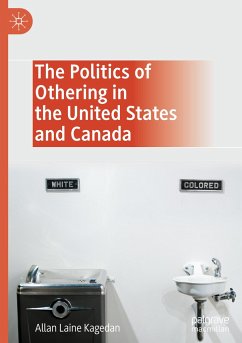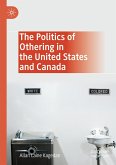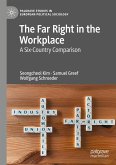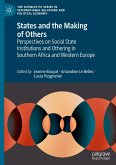This book analyses the politics of othering in the USA and Canada from the nineteenth century to the present day. It outlines the basis in human behaviour for 'disliking the unlike', which can take the form of ethnocentrism, racism and xenophobia, and shows how politicians take advantage of this human tendency. Seven case studies explore the use of political othering towards minority groups: Indigenous peoples, Jews, Japanese, those with left-wing views, LGBTQ individuals, Blacks, and Muslims. The book argues that prior to World War II, and with the significant exception of Blacks, the politics of othering was stronger in Canada than in the USA. After World War II, the situation reversed and the politics of othering was practiced more in the USA than in Canada. Lastly, the book explains how public policy and international issues prompted this change, discusses future trends in political othering, and offers ideas for promoting inclusion over othering.
Bitte wählen Sie Ihr Anliegen aus.
Rechnungen
Retourenschein anfordern
Bestellstatus
Storno








